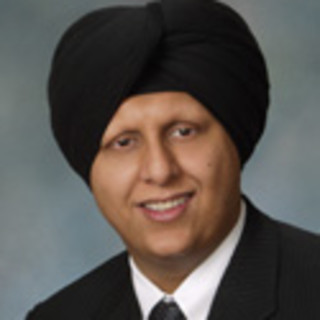The last two years have been, to put it lightly, different. A global pandemic, political unrest, and racial tensions have dominated the headlines. The medical community was heavily affected by these events. As we navigated the COVID-19 pandemic, we learned how to do things differently, whether through telemedicine or adjusting how we perform procedures. As we watched the social unrest, we reacted through social media and — most importantly — open conversations.
Digestive Disease Week 2021 was not immune to change and was certainly different this year compared to years past. Given that it was canceled altogether last year, it was refreshing to at least have a conference, even though it wasn’t what we were expecting. While the free pens, product booths, dinners, late-night meetings, and parties were gone, and while we didn’t get the opportunity to hang out and let loose, we could focus on the talks and learn.
This year, the conference spanned three days, as opposed to the typical five or six. The online format allowed us to be able to be in several places at once. Often during conferences, one can become frustrated given the number of talks that coincide with one another, which leads to a massive case of “FOMO” (fear of missing out). This time, participants could pick and choose and then watch later as needed, allowing many clinicians the ability to fit the conference around their work — and, more importantly, family — schedules as opposed to the opposite.
The subject matter was similar to years past in which hot topics such as Barrett’s esophagus and its diagnosis and techniques to identify and successfully remove polyps were discussed in detail. I had a unique perspective on this conference, as I attended many of the sessions, but I also had the honor to moderate one as well.
One of the topics that caught my eye included a panel discussion on race in medicine and how it pertains to gastroenterology. This session featured many prominent gastroenterologists from underrepresented racial groups. Takeaways included that the system has a long way to go as many of the issues facing minority gastroenterologists are deeply rooted in our perceptions and education as it pertains to race and disease. Not only increasing diversity in the field is needed (which is an obvious solution), but we as a medical community need to push for open conversations and a deep look at systemic problems, such as a lack of funding of minority programs and a lack of role models and mentors.
In line with changes that have come, and are coming, to science and day-to-day life, medicine, and specifically gastroenterology, is no exception. We are on the cusp of artificial intelligence having a routine place in clinical practice. Many presentations focused on the implementation of this technology and examined its clinical utility. First, Repici et al. concluded that AI helps endoscopists get better at finding polyps, thus improving outcomes. In the same Session, Shunsuke et al. similarly showed that AI helps decrease the miss rates for experts and non-experts. This benefit was not only seen with colonoscopy, as Samarsena and his colleagues from UC Irvine showed a benefit in the detection of dysplasia changes in Barrett’s esophagus. In the world of therapeutic endoscopy, AI can help accurately identify cellularity and malignancy in the rapid on-site evaluation of pancreatic FNA specimens as described by Patel and Thosani from UT Houston. All these developments translate to better outcomes for patients and more efficient care. This was summarized nicely by Dr. De Groen in the state-of-the-art discussion of this topic.
Another timely and topical symposium examined “How 2020 Impacted GI: COVID, Telemedicine and Workflows.” In this session, a topic that captured something we see in the real world and explored by Wee et al. explored patient satisfaction with telemedicine and direct access appointments for patients who underwent advanced procedures. Patients had a higher satisfaction rate with a pre-procedure telemedicine visit opposed to direct access — or even a face-to-face — appointment. This reflected my own real-life experience as well and served as a personal reassurance that I am doing something correctly with my patients. Another point that was brought up by Abdelqadar et al. in this session was that they saw a decrease in volume by 42%, which led to significant financial loss to their institution. This also mirrors what we saw in our practice.
Overall, DDW 2021 provided me with new insights. First, I learned that a content-heavy conference could be made more digestible in an online, go-at-your-own-pace format, thus decreasing academic FOMO. While I missed the social interactions that this conference usually provided, I felt the online variety was an adequate alternative. This could be due to my newfound comfort level that the pandemic has forced me to accept. Secondly, technology is advancing, and — as in automobiles and social media — AI is involved in medicine, and it will be an integral part of our practices moving forward. Third, as racism and sexism exist in the world, it is also sadly prevalent in gastroenterology. We must do better, and we must be better. There are opportunities to improve, whether it be in opportunities in academics or mentorship. We must seek out these opportunities and create change. Finally, the pandemic and lockdowns have affected us all, and the adjustments we made worked. It seems that we all did many of the same things to adapt that helped us get through this and have provided templates for change in the future. I am curious and excited to see how many of these changes stay in our workflows in the future, and I look forward to participating in the new normal.







